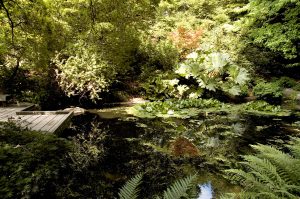Generational Amnesia: The Memory Loss That Harms the Planet
Richard Fisher · BBC · June 24, 2021
Featuring Peter Kahn, Nature and Health researcher and Steering Committee member
 According to Kahn and Weiss, we all experience this environmental form of generational amnesia. It is not so much that individuals fail to recall the past they themselves have lived, it’s more that humanity collectively “forgets” the natural world as it once was, as the generations pass. “The problem is one of the most pressing psychological problems of our lifetime,” they write. “It is hard enough to solve problems, like deforestation, ocean acidification, and climate change; but at least most people recognise them as problems.”
According to Kahn and Weiss, we all experience this environmental form of generational amnesia. It is not so much that individuals fail to recall the past they themselves have lived, it’s more that humanity collectively “forgets” the natural world as it once was, as the generations pass. “The problem is one of the most pressing psychological problems of our lifetime,” they write. “It is hard enough to solve problems, like deforestation, ocean acidification, and climate change; but at least most people recognise them as problems.”
Even the most familiar examples of nature, close to home, can be forgotten. Zoologist Lizzie Jones of Royal Holloway, London and colleagues recently interviewed people living in the UK about their perceptions and memories of 10 species of garden bird, both at the time of the survey and their recollection of when they were 18 years old. They found that younger people, who were closer to the age of 18, were less able to describe the true long-term ecological change that had happened among British bird populations. As Jones and colleagues pointed out, murmurations of starlings were once a common sight in the UK but their numbers in England alone declined by 87% between 1967 and 2015. Another example might be the “windscreen phenomenon”, which describes the observation by all but the youngest generations that fewer insects are splattered on their cars nowadays.
Is there any way to avoid such environmental generational amnesia? It might seem that it’s simply a matter of educating each new generation, but Kahn and Weiss propose that doesn’t necessarily mean the traditional teaching of the classroom. Instead, they call on older generations to foster what they call “interaction patterns”, a more experiential approach where children and young people are encouraged to meet nature wherever they can find it.